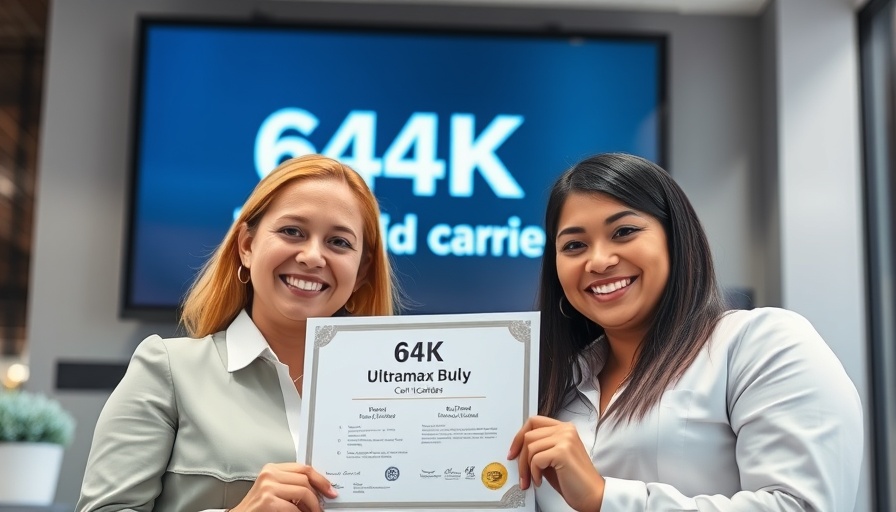
ADNOC L&S and Borouge Join Forces to Elevate UAE's Petrochemical Sector
In an impressive display of commitment to economic growth, ADNOC Logistics & Services Plc (ADNOC L&S) has forged a monumental $531 million partnership with Borouge, aimed at bolstering the United Arab Emirates' petrochemical exports for the long haul. The new agreement positions ADNOC L&S as Borouge's principal logistics partner, expected to manage up to 70% of the company’s annual production, showcasing how strategic collaborations can pave the way for significant industrial advancements.
The Backbone of Borouge's Expansion
This 15-year pact is more than just a contractual arrangement. It signifies a proactive approach to managing logistics that will cater to Borouge's ambitious plans. With Borouge's upcoming "Borouge 4" expansion—which will add 1.4 million tonnes of production capacity per year by 2026—ADNOC L&S is set to play an essential role in transporting products from Al Ruwais Industrial City to major deepwater ports like Jebel Ali and Khalifa Port. This efficient shipping process will be crucial in meeting rising international demands, especially in markets across Asia, the Middle East, and Africa.
Cost-Effectiveness in Logistics
The deal promises not only improved logistics but also significant cost savings. ADNOC L&S predicts that the partnership will unlock over $50 million in logistics-related efficiencies for Borouge within the first five years. By deploying dedicated feeder container ships, the partnership will streamline export flows, underscoring the importance of logistics in optimizing operational efficiencies within the petrochemical sector.
Broadening the Portfolio: ADNOC L&S' Strategic Growth
This agreement marks a pivotal moment for ADNOC L&S, reinforcing its position as a fully integrated logistics and maritime leader. As the UAE continues to solidify its status as a global trade hub, ATI, a leading operator in the energy and industrial sectors, is not solely focused on domestic logistics. This strategic maneuver propels ADNOC L&S into international markets, attracting global investors and fostering long-term relationships built on reliability and efficiency.
Environmental Considerations in Maritime Energy
With climate change influencing global policy, ADNOC L&S must navigate environmental challenges while expanding its logistics services. This partnership is an opportunity to embed sustainability practices into logistical operations, positioning the UAE as a leader in eco-friendly petrochemical exports. As environmental regulations become increasingly stringent, commitment to sustainability can elevate both companies on the international stage.
Future Predictions: The Global Impact of this Partnership
The strategic alliance between ADNOC L&S and Borouge is a blueprint for success within the UAE’s petrochemical industry. As they enhance operational efficiency and maximize exports, we can anticipate an influx of opportunities that may alter not just the domestic landscape, but the global petrochemical market as well. The future indicates a continued trend where strategic partnerships drive innovation, resilience, and competitiveness.
Conclusion
The ADNOC L&S and Borouge partnership represents a significant leap in the UAE’s petrochemical industry, showcasing the strength of collaboration and innovation. With their sights set on cost-efficiency and sustainability, both companies are proving that strategic logistic operations will play a vital role in future economic growth. It’s time for industry stakeholders to observe and perhaps emulate this model of synergy.
 Add Row
Add Row  Add
Add 




 Add Row
Add Row  Add
Add 

Write A Comment